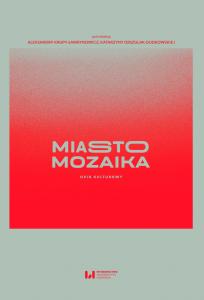Zniewalający urok prostych pomysłów. Filmy Iris Zaki
Streszczenie
Artykuł jest analizą twórczości izraelskiej filmowczyni Iris Zaki. Jej kolejne filmy (My Kosher Shifts, Women in Sink, Unsettling) podejmują coraz trudniejsze politycznie i etycznie problemy dotyczące świata Żydów oraz relacji żydowsko-palestyńskich, a prezentowane kolejno tematy to żydowski ultraortodoksyjny hotel w Londynie, palestyński zakład fryzjerski, którego klientkami są zarówno Żydówki, jak i Palestynki, oraz głos nowego pokolenia Żydów zamieszkujących w osiedlu założonym na dawnych ziemiach palestyńskich. Ważnymi tematami są kwestie tożsamości, etniczności, religii, ale też różnicy i relacji. Szczególnie w dwóch pierwszych filmach warto zwrócić uwagę na usytuowanie Zaki jako osoby pracującej (recepcja, pomoc fryzjerska) – pozwala ono na wytworzenie ciekawej relacji między podmiotami, z którymi Zaki prowadzi rozmowy, a także redefiniuje relacje hierarchiczne. Zaki swoją metodę filmowania nazwała abandoned camera. Przypomina ona tradycyjną fly-on-the-wall, ale tu znajduje dodatkowe uzasadnienie – „porzucając kamerę” i „wychodząc” przed nią, Zaki w centrum filmowania stawia ucieleśnioną relację-rozmowę. The article is an analysis of the work of Israeli filmmaker Iris Zaki. Her successive films (My Kosher Shifts, Women in Sink, Unsettling) address increasingly difficult political and ethical issues concerning the Jewish world and Jewish-Palestinian relations, with a succession of topics including an ultra-Orthodox Jewish hotel in London, a Palestinian-run hairdressing salon whose clients are both Jewish and Palestinian, and the voice of a new generation of Jews living in a settlement established on former Palestinian land. Among the crucial themes are the questions of identity, ethnicity, religion, differences and relationships. Particularly in the first two films, Zaki’s positioning of herself as a working person (receptionist, hairdresser’s helper) is interesting – it allows Zaki to create a relationship with the subjects she talks to and to redefine hierarchical relations. Zaki’s filming method, which she called an „abandoned camera”, is reminiscent of the traditional fly-on-the-wall approach, but in this case there is additional meaning – „abandoning” the camera allows her to step in front of it and to put the embodied relationship-conversation at the center of filming.
Collections


